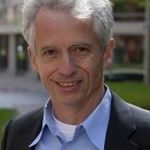2018 Lambert Lecture featured Dr. Eric Jacobsen of Harvard University

On April 30th, 2018 Dr. Eric Jacobsen, Sheldon Emery Professor of Chemistry at Harvard University, presented The 2018 Lambert Lecture, speaking on New Modes of Anion-Binding Catalysis.
His work is focused on low molecular weight, chiral organic molecules possessing distinct hydrogen-bond donor motifs, which have been shown to catalyze an array of C–C and C–heteroatom bond-forming reactions with high enantioselectivity and broad substrate scope. In particular, dual hydrogen bond donors such as ureas, thioureas, squaramides, and guanidinium ions have been studied in detail in the context of electrophile activation. These catalysts operate by either of two, fundamentally different modes of electrophile activation: 1) direct hydrogen bonding to a neutral electrophile, and 2) anion binding to generate chiral ion pair. We have applied the latter reactivity concept to several classes of cationic electrophiles that have presented long-standing challenges to asymmetric catalysis.
In this lecture, Professor Jacobsen described his detailed kinetic and mechanistic studies of catalytic anion-abstraction processes. He discussed how these investigations have revealed unexpected cooperative mechanisms, and new strategies for the design of highly efficient catalysts for a wide range of nucleophilic substitution reactions including enantioselective SN1 pathways and stereospecific glycosylation reactions.
The Lambert Lecture is supported by an endowment established by alumnus Benjamin Lambert, who earned his bachelor’s degree in chemistry at Boston University (CAS ’55). After graduating from law school, he went on to pursue a distinguished career as a patent attorney with such major pharmaceutical companies as Merck and Johnson & Johnson. Each year, the Lambert Lecture addresses different topics in chemistry, the field of Lambert’s undergraduate and graduate studies, and features some of the most distinguished and creative scientists working in the field today.